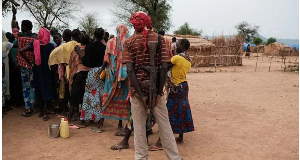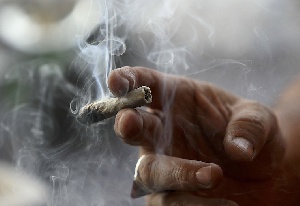General News of Thursday, 10 June 1999
Source: --
Our products are free of dioxin - Kwabena Darko
Accra (Greater Accra), 10th June 99 ?
Darko Farms (DF), Ghana's largest poultry producer, on Wednesday assured consumers that its products are free from dioxin, the chemical ingredient in poultry and other feed that causes cancer.
Mr Kwabena Darko, Chief Exeutive of DF, told journalists at a press conference in Accra that eggs and meat products produced locally from chicken fed on feed compounded from ingredients, which have passed stringent United States Department of Agriculture (USDA) screening, and are safe for human consumption.
He said the company does not import any product from Belgium and that "all Darko Farms and Company Limited feed are free of dioxin".
Ghana last week suspended the importation of chicken, eggs, poultry products, pork and pork products, mayonnaise, pasta, pastries and cakes originating from Belgium because of the dioxin scare.
This is because these products may be unsafe for human consumption as a result of the high level of dioxin in the feed used in the poultry industry in Belgium.
Mr Darko said he had contacted Tyson Foods Incorporated, USA, its new partners, and has been assured that the Tyson quality analysis policy on pesticide residue ensures that all flocks are tested and cleared prior to removal from the farm.
"Samples from feed ingredients, finished feed, litter and soil from each farm are also routinely tested for pesticide residue".
Mr Darko said his company has taken steps to ensure that the withdrawal of poultry products from Belgium and parts of Europe does not create shortages in the country.
"We have stepped up our production of frozen chicken and eggs and ordered additional supplies of chicken cuts from Tyson Foods Inc. under our co-operation agreement".
An official of the Ministry of Trade and Industry said it is instituting measures that would ensure that poultry products from Belgium in the country are shipped back and those already on the market are not consumed.
He appealed to the public to co-operate with the Ministry, the Ghana Standards Board, and the Food and Drugs Administration (FDA) to flush out people, who may try to break the ban and sell such products to the public.












